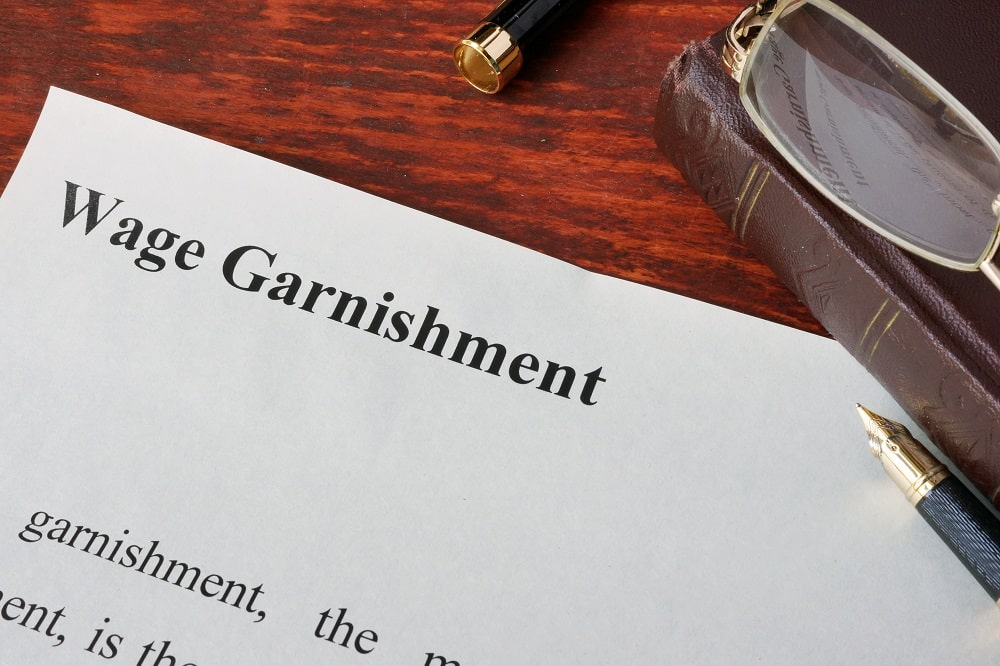
If you find yourself in this situation, your first reaction may be to panic. However, there are some simple, pragmatic, and easy-to-follow steps that you need to take if you want to protect yourself and ensure that all action the IRS takes is completely justified. With this valuable knowledge base, you’ll be able to expertly navigate the situation and protect yourself as much as possible. So, without further delay, let’s dive into what you should do if the IRS decides to garnish your wages in an attempt to collect a debt that is owed.
What Does it Mean to Garnish Wages?
The first thing that you will need to understand is what exactly it means to have your wages garnished. While having your wages garnished doesn’t necessarily sound so ominous, it is a difficult situation for many people. Garnishing your wages means that the IRS will take a portion of your paycheck directly out of your pay in order to compensate the IRS for the taxes that you owe them.
“Garnish” is also often referred to as a “levy”, but they mean the same thing. In both instances, it means that the US Government is deciding to seize the money you earn before it hits your bank account to pay back debts that you owe to the IRS. As you might guess, this makes many people quite upset and angry.
When Does the IRS Decide to Garnish Wages?
Though wage garnishment sounds very scary and unappealing, it’s not something that most people really have to worry about. The primary reason is that because wage garnishment is one of the most effective tools that the IRS has to retrieve funds that it is owed, it’s not something that they have to use all that often. Wage garnishment is typically seen as a last resort measure that the IRS will only take the effort to go through when all other options have been extinguished.
Usually, wage garnishment occurs when the individual that owes taxes has refused all other means of setting the debt. Before wage garnishment, the IRS will send letters and notices to notify the payer that they owe taxes to the IRS. If they do not pay them and repeatedly refuse to pursue another settlement option, the IRS will take the drastic step of garnishing the wages of that individual.
How Much of My Wages Will the IRS Take?
If you are facing wage garnishment, one thing that is probably on your mind is wondering how much of your wages the IRS will actually take. You don’t want to be left with an empty bank account at the end of the month! Well, the IRS has some strict rules when it comes to wage garnishment. The IRS has a minimum that they must leave you at the end of the month. This changes depending on your dependents.
Anything over that minimum will be garnished by the IRS. So, for individuals that are paid quite a lot, this can have a very heavy impact on their lifestyle. This might require you to evaluate your living expenses for a while and take other means to lower your monthly bills.
What Are My Options if I’m Facing a Wage Garnishment?
Though wage garnishment is certainly an intimidating and worrying prospect, you still have some options. There are some things that you should do if you receive a notice that your wages will be garnished. If you follow these steps, you can improve your situation, or at least make sure that you have a full understanding of what is going to happen during wage garnishment.
- Request an Audit or Appeal: For those that want to fight the decision to garnish wages but do not want to hire an attorney, you can work directly with our tax team. This is an option that is mostly used if you feel that your tax calculation is incorrect and the IRS is trying to reclaim more money than you owe them.
- Set Up a Payment Plan with the IRS: If you do not want your wages to be garnished, we can help you setup a payment plan. If you are at the point where the IRS has already garnished your wages, it might be too late to reach an agreement. Still, for some situations, the IRS will agree to make things a bit easier for you and put you on a monthly payment plan that you can afford. Here’s a quick guide on the different types of payment plans with the IRS.
- Pay the Amount in Full: The final option that you have is to pay the amount in full. If you want to avoid extra penalties and interest from the IRS, then this is the best option. However, it might not be possible for everyone. Sometimes, the amounts that you end up owing to the IRS are not small and require many months to pay them. If you have the money to pay the amount in full, that is often the best path forward.
Next Steps
If you’re looking to stop a wage garnishment, please contact us today by phone or email. It is never a good idea to approach complex financial decisions without sound advice from a team who really understands the choices you’re weighing therefore we are here to assist you when it comes to tax debt relief and keeping the IRS out of your life.

The IRS is a government agency that is feared by many–and for good reason. While the primary goal of the IRS is simply to collect taxes that are due as the civic duty of everyone in the country, they are often vilified because these attempts sometimes end up contested. In addition, people simply do not like paying taxes. One of the many weapons that the IRS has in its arsenal to collect the taxes that it is owed is to garnish the wages of people that owe taxes.
If you find yourself in this situation, your first reaction may be to panic. However, there are some simple, pragmatic, and easy-to-follow steps that you need to take if you want to protect yourself and ensure that all action the IRS takes is completely justified. With this valuable knowledge base, you’ll be able to expertly navigate the situation and protect yourself as much as possible. So, without further delay, let’s dive into what you should do if the IRS decides to garnish your wages in an attempt to collect a debt that is owed.
What Does it Mean to Garnish Wages?
The first thing that you will need to understand is what exactly it means to have your wages garnished. While having your wages garnished doesn’t necessarily sound so ominous, it is a difficult situation for many people. Garnishing your wages means that the IRS will take a portion of your paycheck directly out of your pay in order to compensate the IRS for the taxes that you owe them.
“Garnish” is also often referred to as a “levy”, but they mean the same thing. In both instances, it means that the US Government is deciding to seize the money you earn before it hits your bank account to pay back debts that you owe to the IRS. As you might guess, this makes many people quite upset and angry.
When Does the IRS Decide to Garnish Wages?
Though wage garnishment sounds very scary and unappealing, it’s not something that most people really have to worry about. The primary reason is that because wage garnishment is one of the most effective tools that the IRS has to retrieve funds that it is owed, it’s not something that they have to use all that often. Wage garnishment is typically seen as a last resort measure that the IRS will only take the effort to go through when all other options have been extinguished.
Usually, wage garnishment occurs when the individual that owes taxes has refused all other means of setting the debt. Before wage garnishment, the IRS will send letters and notices to notify the payer that they owe taxes to the IRS. If they do not pay them and repeatedly refuse to pursue another settlement option, the IRS will take the drastic step of garnishing the wages of that individual.
How Much of My Wages Will the IRS Take?
If you are facing wage garnishment, one thing that is probably on your mind is wondering how much of your wages the IRS will actually take. You don’t want to be left with an empty bank account at the end of the month! Well, the IRS has some strict rules when it comes to wage garnishment. The IRS has a minimum that they must leave you at the end of the month. This changes depending on your dependents.
Anything over that minimum will be garnished by the IRS. So, for individuals that are paid quite a lot, this can have a very heavy impact on their lifestyle. This might require you to evaluate your living expenses for a while and take other means to lower your monthly bills.
What Are My Options if I’m Facing a Wage Garnishment?
Though wage garnishment is certainly an intimidating and worrying prospect, you still have some options. There are some things that you should do if you receive a notice that your wages will be garnished. If you follow these steps, you can improve your situation, or at least make sure that you have a full understanding of what is going to happen during wage garnishment.
- Request an Audit or Appeal: For those that want to fight the decision to garnish wages but do not want to hire an attorney, you can work directly with our tax team. This is an option that is mostly used if you feel that your tax calculation is incorrect and the IRS is trying to reclaim more money than you owe them.
- Set Up a Payment Plan with the IRS: If you do not want your wages to be garnished, we can help you setup a payment plan. If you are at the point where the IRS has already garnished your wages, it might be too late to reach an agreement. Still, for some situations, the IRS will agree to make things a bit easier for you and put you on a monthly payment plan that you can afford. Here’s a quick guide on the different types of payment plans with the IRS.
- Pay the Amount in Full: The final option that you have is to pay the amount in full. If you want to avoid extra penalties and interest from the IRS, then this is the best option. However, it might not be possible for everyone. Sometimes, the amounts that you end up owing to the IRS are not small and require many months to pay them. If you have the money to pay the amount in full, that is often the best path forward.
Next Steps
If you’re looking to stop a wage garnishment, please contact us today by phone or email. It is never a good idea to approach complex financial decisions without sound advice from a team who really understands the choices you’re weighing therefore we are here to assist you when it comes to tax debt relief and keeping the IRS out of your life.





